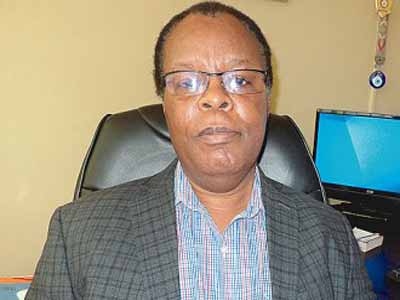
A Professor of Psychiatry and Director, World Health Organisation (WHO) Centre for Research and Training in Mental Health, substance abuse and neuroscience, Oye Guruje has said that ministerial nominees must undergo medical fitness test apart from asset declaration to determine their suitability for the job.
But Prof. Guruje at the World Mental Health Day urged the lawmakers to also insist that the incoming ministers should be men of integrity like President Muhammadu Buhari so as to jointly salvage the economy of the nation from the brink of collapse occasioned by years of mindless stealing of the nation’s treasury by some public officers.
Guruje, who is also the initiator and project director of Mental Health Leadership and Advocacy Programme (MHLAP), a project of mental health leadership capacity building and advocacy being conducted in five west African countries including Nigeria, Ghana, Sierria-Leone, Liberia and Gambia said corruption is a thing of the mind and not necessarily connected with the state of mental health of public officers.
While shedding more light on this year’s theme titled “Dignity in Mental Health”, Prof. Guruje told reporters at the Nigeria Union of Journalists (NUJ), Iyaganku, Ibadan that the stakeholders are raising awareness on what can be done to ensure that people with mental health conditions live with dignity, through the development and implementation of policies and law that protect their rights, adequate training of health professionals to provide effective mental health service, respect for the views of persons with mental health conditions by their health providers, their inclusion in decision-making processes, and informed public attitude to mental illness.
Guruje stated that about one in seven adult Nigerians will have one form of mental disorder or the other in their lifetime.
“Many Nigerian communities are faced with factors that present risks to mental health including poverty, conflicts and disasters. It can therefore be no surprise that mental disorders are on the rise in our communities. Mental disorders including the very common ones, are associated with several adverse effects. They often lead to premature termination of education, marital dysfunction, unemployment and loss of earning, parental dysfunction and poverty. Indeed it has been established that some of the commonly occuring mental disorders such as depression and anxiety disorders are more disabling than many of the common chronic physical health conditions, such as arthritis, diabetes or hypertension.”
He lamented that people with mental illness have limited access to treatment global and solicited for more efforts to correct the anomaly.
“People with mental health challenges are often ignored or neglected. Many of them become targets of physical and emotional abuse, stigma and discrimination. Indeed, the pervasive stigma of mental disorders is a major reason why the required policy attention, as well as, the needed resources for improving mental health service are often not provided by policy makers.”
He therefore called on the media to spread the news that mental health illness is like every other health challenges, madding. “Mental health is common; mental health is treatable; someone with mental health illness can recover fully with treatment and become a productive member of the society.”



